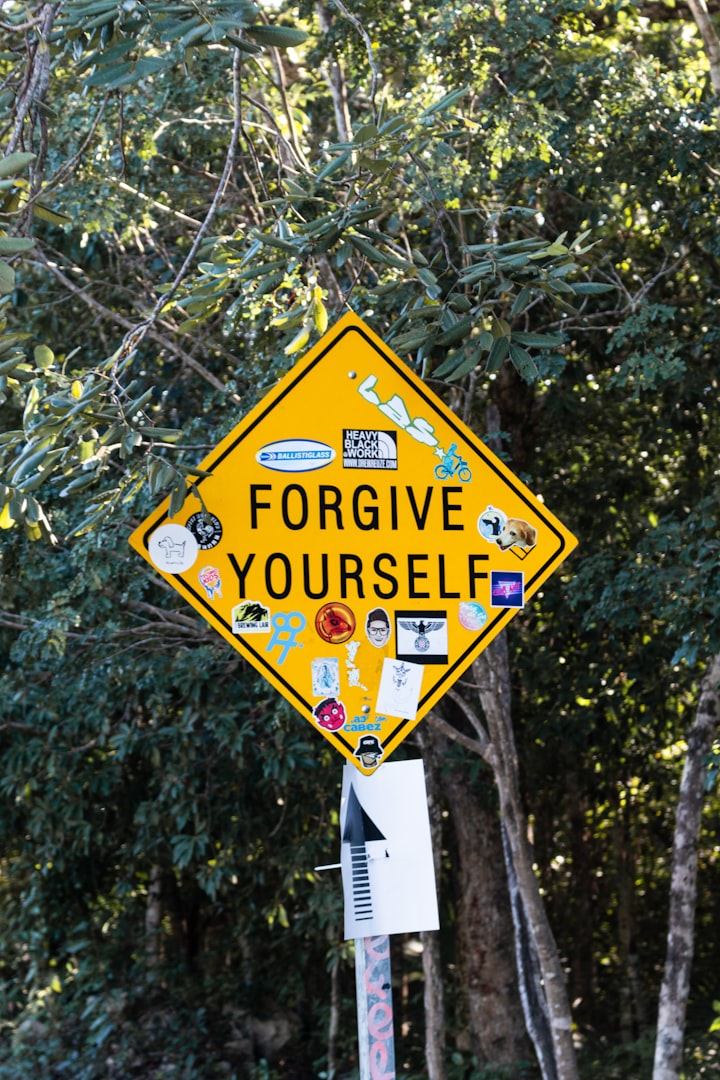How to Stop Abandoning Yourself
Be Your Own Advocate

If you grew up (or live in) a dysfunctional or abusive home, then you know what it's like to have your needs forsaken while others' are prioritized.
You know what it's like to be told "you are not as important as someone else" (whether directly or indirectly).
You also know what follows: expectations that you bear responsibility for that person-their emotions, behaviors, etc.
Over time, whether we resist or not, this idea becomes ingrained in our heads- in our identities.
We begin to abandon our needs, wants, and desires, in favor of others. It may have started out as one person ("Sorry honey, no birthday party this year, your sister has a soccer game") but overtime has developed to most, if not all of the people around you.
After years of conditioning, we are programmed to believe that we are unimportant, always.
Or at least less important than another person's needs.
-
Overtime, this becomes the norm. We're known as selfless, generous, or considerate. It can be a cornerstone of our identity. That is our role in our families or friend groups.
We are the person anyone and everyone can always rely on. We wear it like a badge of honor, but it feels more like chains.
Don't get me wrong, those are great characteristics to have. We should be generous and considerate of the people around us. If we all were, it would make us a better society.
But it is vital that we retain boundaries-that we can still say "no" and walk away when we need to.

Its imperative that we don't sell ourselves out for the sake of others
This is where self-abandonment comes into play. Overtime, if left unchecked, we begin to forsake our own needs to meet others.
This stems from two toxic trains of thought:
We think their needs are more important than our own.
Yes, in certain situations, some needs outweigh others. But it should not be the frequent and normal expectation.
Healthy relationships are built on give-and-take. You should be receiving as much support as you give to the people you love.
If you were always the one putting your needs on the back burner, then you need to reevaluate your boundaries and your self abandonment.
We believe it's our job to fix others problems
Often, we abandon ourselves in favor of others because we believe it is our duty to do so. Whether consciously or not, we feel responsible for peoples' problems and needs.
If we don't set healthy boundaries to keep these impulses in check, we will find that we constantly abandon ourselves to take care of others.
It's also imperative to as remember that each person is responsible for themselves. Just like we can't abandon ourselves, they shouldn't (and often don't) abandon themselves.
So what does this mean for me?
- You have to begin to value yourself enough to put your needs at a higher importance.
- You need to love yourself enough to remember you are worth the same effort you give to others.
- You have to find a balance between self-care and others-care that leaves you mentally and emotionally stable.
- Before you can be of use to others, you have to show up for yourself. This is key in forming healthy relationships.
- You need to learn how to set boundaries (which can be done lovingly) with the people in your life so you can prioritize your own needs as well. Doing so will let you have better mental health. A great book for learning about this is Boundaries by Dr. John Townsend.
-
I'm sure there are a dozen more reasons why not abandoning yourself is important. But the key takeaway is this: you are worthy of your best.
You are worth taking care of, worth maintaining mental health, worth making happy, and worth fighting for.
It's time for you to give to yourself what you haven't gotten, what was never given to you.
It will change your life.
About the Creator
Ashley Tripp
I’m a freelance writer & artist. I create pieces about the things that move me with the hopes that they move my readers too. My work has been featured in multiple publications. Check out my website for more at https://msha.ke/ashleytripp






Comments
There are no comments for this story
Be the first to respond and start the conversation.